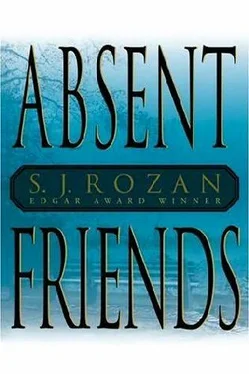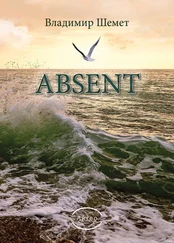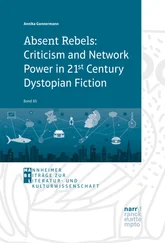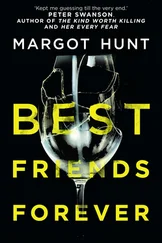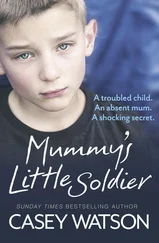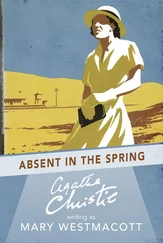Sally's green eyes get wide; Marian moves a little closer next to her and pats her hand. Everyone's quiet for a moment. The kids are all thinking about what Mr. Spano, a red-faced explosion of a man, might have done to Eddie, and about Eddie not telling.
Al Spano is just plain mean, for no reason, like his two sons. The Italians, the kids all think they're weird anyway. They wave their hands around and listen to music that you can't understand the words, and the old ladies wear black. But this kind of meanness, it's not from being Italian. All the kids keep away from Al Spano, all the kids cross to the other side of the street on the block where the Spanos live; all except Jack, who walks on that side on purpose, staring right into the windows of their house. No question Al Spano would tear out and break the arm of any man whose son was messing with his son. Even Mike the Bear: any man. But going up against Mike the Bear, that would be the end of Al Spano. Eddie Spano must know that, everyone knows that. So Eddie has to say he doesn't know who poured the gasoline.
Eddie's doing what he has to do. The kids are still scared of him, they'll never like him, and he deserves whatever he's getting; but his silence, they respect. Only Marian looks sad.
Sitting there on the stoop, everyone quiet, Jimmy's thinking, like the other kids, about Al Spano and the beating Eddie must have taken. But he's thinking about something else, too: what would happen if the Spano brothers snatched little Paulie's lunch money again tomorrow.
He sees it: Eddie Spano howling, rolling on the ground, eaten alive by flames.
He knows it won't be like that: the Spanos will never go near Paulie again. But if they did? Jimmy watches Tom, Tom's hands peeling the bark from a stick, digging with his thumbs where it doesn't want to come off.
But if they did, Jimmy thinks. Whose job would it be, then, to put that fire out?
Tom looks up at Jimmy, almost like Jimmy said what he was thinking out loud. Looks at him, but doesn't answer the question.
Tom snaps the stick, throws it away. Anyhow, he says. This way Paulie gets to keep his lunch money. The only one in trouble is Eddie, and he started it. The important thing-and now he grins, that great grin that makes them all feel good, all feel part of everything-the important thing, Dad don't get smacked by Sister Joseph.
The kids all laugh.
But there's something else Jimmy sees, sees and doesn't forget. What Tom wanted was to make the Spanos stop. Tom makes Jack part of it, what Jack will want is to beat the crap out of anything that moves. Kids fight, it's no big deal, not big enough for Sister Joseph to call anyone out. Except the way Jack fights. Jack gets in there, everything blows up, everyone's in trouble.
Tom looking out for little Paulie the way he did, Jimmy knows, that way instead of a different way, is also Tom looking out for Jack.
From the New York Tribune, October 24, 2001
A HERO'S LEGACY
by Harold Randall
Today was a happy day in Pleasant Hills.
This Staten Island hamlet of modest homes on sloping, tree-shaded streets is a town that lives up to its name. Kids ride bikes past well-tended flower beds on their way to the schools their parents went to. Main Street runs a short three blocks, lined with mom-and-pop shops. The Post Office is on the eastern end of Main Street, and the parish church of St. Ann's anchors the west. Between them, in the symbolic heart of Pleasant Hills, stands Engine 168, one of the first firehouses on Staten Island and still in use.
The purple and black bunting draped above the red doors of Engine 168 and the flags at half staff all over town suggest that Pleasant Hills hasn't had many happy days lately. Engine 168 lost two men on September 11, men who lived here, who were neighbors, fathers, and friends. The town also lost four other residents: two who worked in the World Trade Center, and two who were firefighters with other FDNY companies. And Pleasant Hills is also mourning a native son, a man who left this town 20 years ago but will always be one of their own: Capt. James McCaffery, one of the most decorated firefighters in the history of the FDNY. Capt. McCaffery died in the collapse of the north tower along with three other members of Ladder 62, the Manhattan company he commanded.
But today was a happy day in Pleasant Hills, because another native son, a little worse for wear, maybe, but alive and whole, came home.
Kevin Keegan was a probationary firefighter with three months' experience under his belt when the bell at Engine 168 rang on September 11. His shift was over; he didn't need to be there. But Keegan could often be found in the firehouse after his shift was over. Or before it began. Or on off-duty days. He liked the place: the kidding around, the stories, even the food.
“Kevin grew up here,” Owen McCardle told the Tribune. The gray-mustached Pleasant Hills resident spent his entire career at Engine 168. Though he left the job over a decade ago, McCardle is still a part of the firehouse family; in the FDNY, that's how it works. “Jimmy McCaffery was here then,” McCardle said. “He used to bring Kevin around to the firehouse after his father was gone. When Jimmy transferred out, he asked us to look after the kid.”
“We made him like the prince of the firehouse,” confirmed Peter Connell, recently promoted to captain and given the command of Engine 168. 168's former commander, Bill Small, is one of the men this company lost. “Kevin was two when his father died. We sort of adopted him. No kid should have to grow up without a father.” Captain Connell looked back through the open firehouse door to the apparatus floor. Engine 168, damaged in the maelstrom that was September 11, has been repaired and repainted. The captain said, “I guess there are going to be a lot of kids to adopt now.”
When the call came in to Engine 168 on September 11, off-duty firefighter Kevin Keegan asked Captain Small for permission to ride along. By then the extraordinary nature of the event was clear, though not yet its true and terrible extent. With the other members of the company, Keegan rode the engine into a cataclysm for which no level of experience could have prepared anyone.
“They had the bridge open for emergency vehicles, but it was slow going.” In an interview last week, Keegan sat with a visitor at a picnic table on the rolling grounds of the Burke Rehabilitation Center in White Plains. “By the time we got there, the second plane had hit. The fires were burning pretty bad.”
Keegan is a cheerful red-haired, freckled young man. But when he speaks of the events of that day, he turns his gaze away. He peers across the distant hills like a man hoping for the first glimpse of travelers returning home.
“Everything was chaos,” Keegan said. “Girders crashing down, glass breaking. People on fire falling from the sky. It was unbelievable.” Here in the green serenity of the hospital grounds, it did seem almost unbelievable that such horrors had ever been real.
“They sent us to the north tower,” Keegan went on. “We were massing to go in-there was a chief there, I don't know which chief, but my captain reported to him. And there were, I think, four other companies. And we were getting set when part of the building just came twisting out of the sky. Someone shouted, and some guys ran, but some guys didn't have a chance to run.”
Keegan was seriously injured by the falling debris, receiving a concussion and second-degree burns; but it's clear he knows how much luckier he is than many of the men with whom he stood.
“I lay there with something heavy on top of me. I knew I was being burned, but I couldn't move. I thought, I'm going to die. But, okay, at least I'm on the Job, I'll die as a firefighter. That was okay, you know?”
Читать дальше
